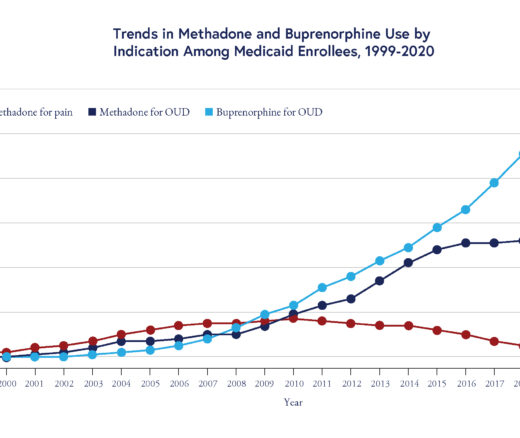
Methadone Use Rises—But Too Few People Get Opioid Medication
Chart of the Day: Methadone Use for Opioid Use Disorder Tripled From 2010–2020, Yet Only One in Four People With Addiction Receive Medication
News
Responding to the release of the U.S. Department of Housing and Urban Development’s (HUD) 2023 Annual Homeless Assessment Report to Congress that cited a “record level” of homelessness, LDI Senior Fellow Dennis Culhane, PhD, pointed out to the New York Times that the “record” “is partly a manufactured problem.”
Culhane, Professor and Chair in Social Policy at the University of Pennsylvania’s School of Social Policy and Practice, is an advisor to the annual federal homeless count. In the Times story, he pointed out that much of the increase is due to the migrants who could have been treated more humanely outside the homeless services system in areas where they arrived.
Other academics also reported that the dynamics of homelessness across the country have been altered by the large numbers of migrants, particularly since some Republican state officials began transporting newly arrived migrants to northern urban areas where many stepped off the bus into immediate homelessness.
“Even without the migrant crisis we would have had seen some increase, but certainly not to this extent,” Culhane told the Times.
Almost 75% of the increase in homelessness occurred in just five states—New York, Florida, Colorado, Massachusetts, and California. The first four are reported to have received the highest levels of the latest wave of immigrants.
“This isn’t the natural flow of migration—this is the intentional relocation of migrants to communities not prepared to handle them,” Culhane told the Times.
The HUD report said that the largest numerical increase in homelessness was found among people who identify as Hispanic or Latino–they made up 55% of the total increase in people experiencing homelessness in 2023.

Chart of the Day: Methadone Use for Opioid Use Disorder Tripled From 2010–2020, Yet Only One in Four People With Addiction Receive Medication

Researchers Use AI to Analyze Patient Phone Calls for Vocal Cues Predicting Palliative Care Acceptance

Medicare’s Payment Plan Can Ease Seniors’ Crushing Drug Costs but Medicare Buries it in the Fine Print

LDI Fellows’ Research Quantifies the Effects of High Health Care Costs for Consumers and Shines Light on Several Drivers of High U.S. Health Care Costs

Comment: Submitted to Centers for Medicare & Medicaid Services

A Licensure Model May Offer Safer Oversight as Clinical AI Grows More Complex, a Penn LDI Doctor Says